Did Moscow order the death of the oligarchs’ London lawyer?
The death of Stephen Curtis, a Mayfair lawyer trapped in a power struggle between Putin and Russia’s wealthiest tycoon, leaves many unanswered questions. Mark Hollingsworth, author of ‘Londongrad’, follows a dark trail that takes him to MI6 and GCHQ, as he pieces together a story of a high-stakes life straight out of a Le Carre novel...
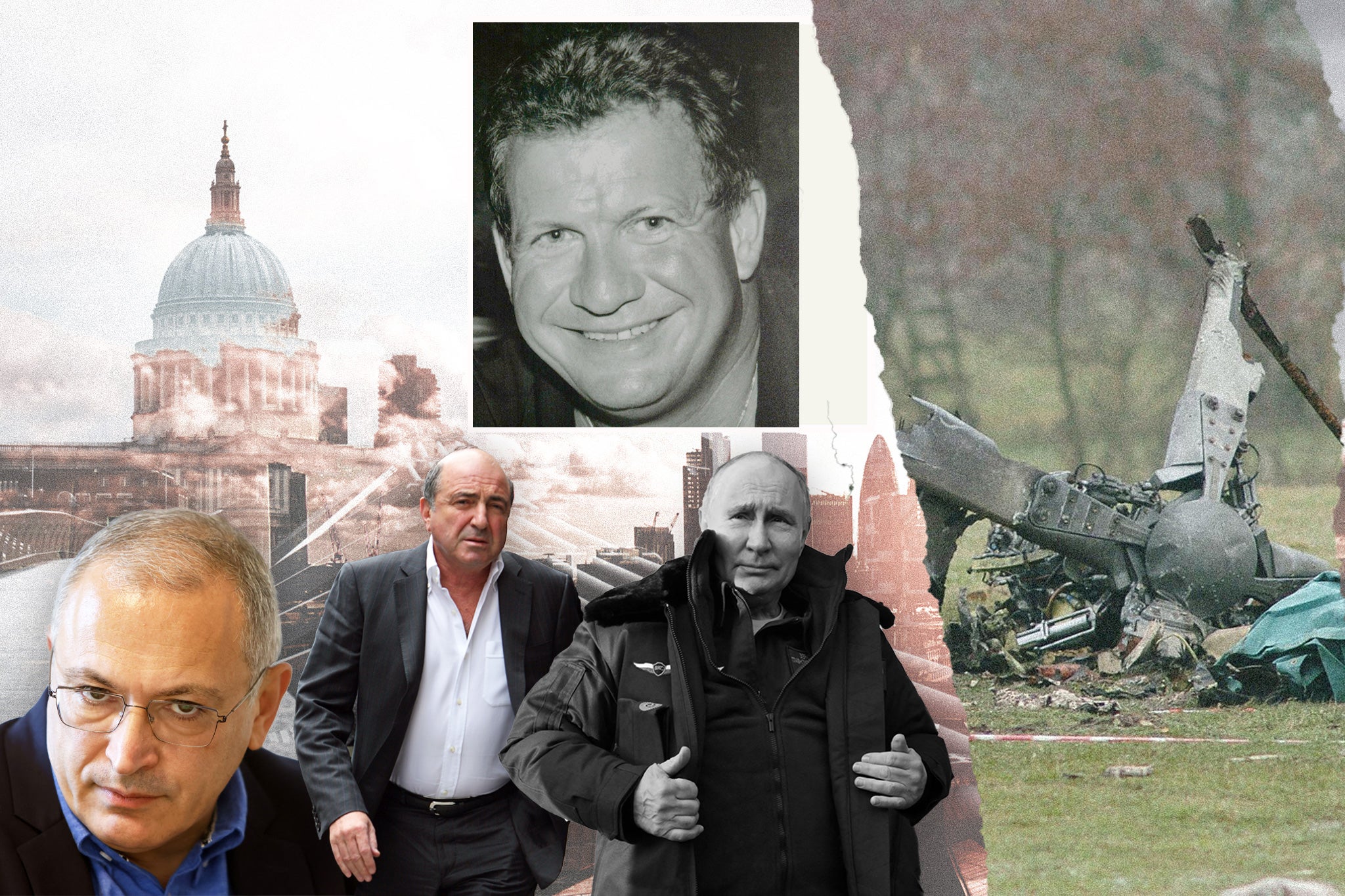
It is 6.56pm, Wednesday 3 March 2004. A new white six-seater £1.5m Agusta A109E helicopter lands under an overcast sky at Battersea heliport, London. Waiting impatiently on the tarmac and clutching his two unregistered Vodafone mobile phones is a broad-shouldered 45-year-old lawyer named Stephen Curtis. He is not in the best of moods. Three minutes earlier he called Nigel Brown, his head of security, regarding disputed invoices sent to a Russian client. “Look, I have to go now,” he snaps.
Curtis climbs aboard the helicopter and at 6.59pm, the chopper lifts off into the gloomy London sky. It is misty with broken clouds at 3,800ft but conditions are reasonable for flying, with visibility of seven kilometres.
The lawyer turns off both phones and sits back. After a stressful day of dealing with demanding Russian clients from his £4m penthouse overlooking the Thames, he is looking forward to a relaxing evening at home at Pennsylvania Castle, his 18th-century retreat in Portland, Dorset.
By the time the helicopter approaches Bournemouth Airport it is raining lightly and the runway is obscured by clouds. The Agusta is cleared to land and descends where, despite the gloom, the lights of the cars on the A27 are now visible at dusk. The pilot, Captain Max Radford, who regularly flies Curtis to and from London, radios air traffic control for permission to land on runway 26.
“Echo Romeo”, replies Kirsty Holtan, the air traffic controller. “Just check that you are visual with the field.”
“Er, negative. Not this time. Echo Romeo.”
The air traffic controller can only see the helicopter on her remote radar monitor. Concerned, she increases the runway lighting to maximum intensity. A mile from the airport the pilot radios: “Just becoming visual this time.”
“Golf Echo Romeo. Do you require radar?” asks Holtan.
“Yes, yes,” replies Radford, his voice now strained. He repeats this 11 times in quick succession.
Suddenly, the chopper descends sharply to the left. Within seconds it has fallen 400ft. “Golf Echo Romeo. Is everything OK?” asks a concerned Holtan.
“Negative, negative,” replies Radford.
For the next 56 seconds, the pilot confirms he has power but then suddenly, frantically, radios: “We have a problem, we have a problem.” As the chopper loses power, Radford shouts down the open mike: “OK, I need a climb, I need a climb.”
Radford hears a warning that the speed of the main rotor blades has dropped and can be heard struggling to turn out of a dive, but has lost control. “No. No,” he shouts in a panic. They are his last words.
The helicopter, now in freefall, nose-dives into a field at high speed and explodes on impact, sending a fireball 30ft into the air. “The whole field appeared to be on fire,” recalled Sarah Price, who lives beneath the flight path. “It was horrific.”
Curtis and his pilot die instantly. Later, their charred bodies are taken to the mortuary at Boscombe, Dorset where they can only be identified using DNA samples.
The news of Curtis’s death sent shockwaves through the world of Russian oligarchs. Since the late 1990s, he had been the covert custodian of their vast fortunes and had protected them from the scrutiny of the Kremlin, Russian tax authorities and law enforcement agencies.
Curtis had made powerful enemies, notably Vladimir Putin, because his oligarch clients, including Boris Berezovsky and Mikhail Khodorkovsky, were active opponents of his regime.
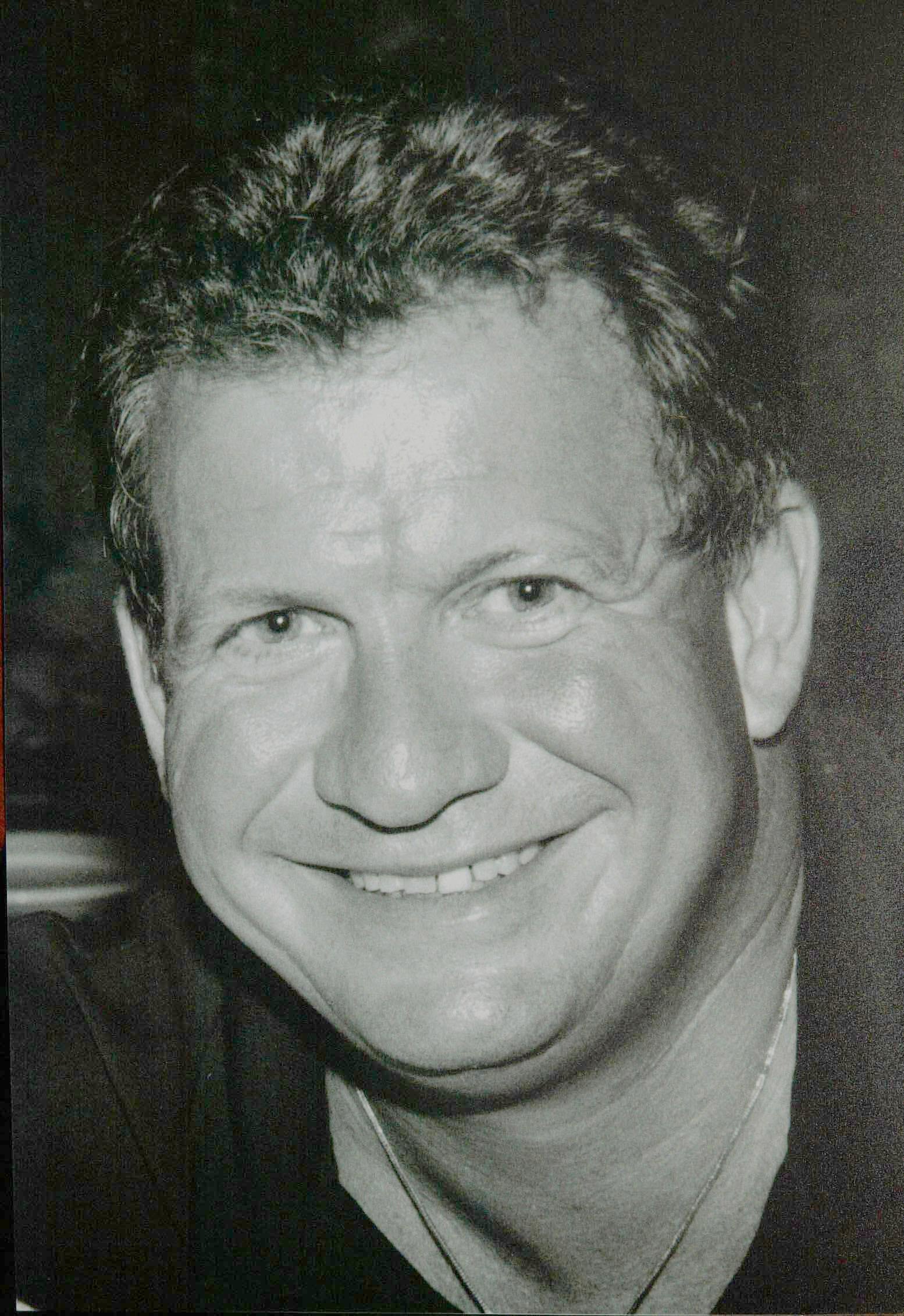
Both had commissioned private investigations to destabilise Putin. Codenamed “Operation Fab”, the investigators were tasked to unearth compromising evidence of the corruption of Putin’s allies and damage the president by leaking their findings to the Western media. “We were going to create a media frenzy which would have been irresistible,” said a source involved in the operation.
Curtis loved the excitement of working for the oligarchs, but was increasingly nervous about his own vulnerability. He needed protection. And so for the last three months of his life, he became a secret informant for MI6 and GCHQ, the eavesdropping agency, placed him under surveillance.
The man who knew too much
Blessed with remarkable intellect and a prodigious memory, Stephen Langland Curtis was born on 7 August 1958 in Sunderland. His background was modest: his father was an engineer and he graduated with a law degree from Aberystwyth University.
His career took off in the 1980s as a tax solicitor at Fox and Gibbons in London. Most of their clients were from the Middle East and Curtis acted for the Maktoums, the ruling family in Dubai. In 1990 he set up his own law firm, Curtis & Co, specialising in commercial and property transactions.
Gifted, charismatic and gregarious, Curtis was also a generous man. One day he walked out of his office and a beggar held out his hand. Curtis only kept large notes in his jacket and so promptly handed him £50.
Unsurprisingly, he returned and the lawyer tipped him another £50. The beggar then smartened himself up and became the unofficial doorman for the office, hailing taxis for clients and staff.
Curtis was introduced into the lucrative oligarch world by the well-connected Christopher Samuelson, chair of the global family wealth office and trust group Valmet, which managed the assets of rich Russians. “Stephen was the smartest lawyer I ever met,” says Samuelson, who had worked in Russia since the late 1980s and shared an office with Curtis.
The oligarchs trusted Curtis with their wealth. To the astonishment of his colleagues, he bought property, art and jewellery on their behalf with few questions asked.
A heavy drinker, loyal and extravagant, the Mayfair lawyer slipped naturally into their world. He moved their funds between a bewildering series of bank accounts and set up an elaborate ownership of their assets in obscure tax havens.
On their arrival in London, he found them houses, introduced them to bankers, entertained them late into the night, recommended private schools for their children and even Savile Row tailors for their suits.
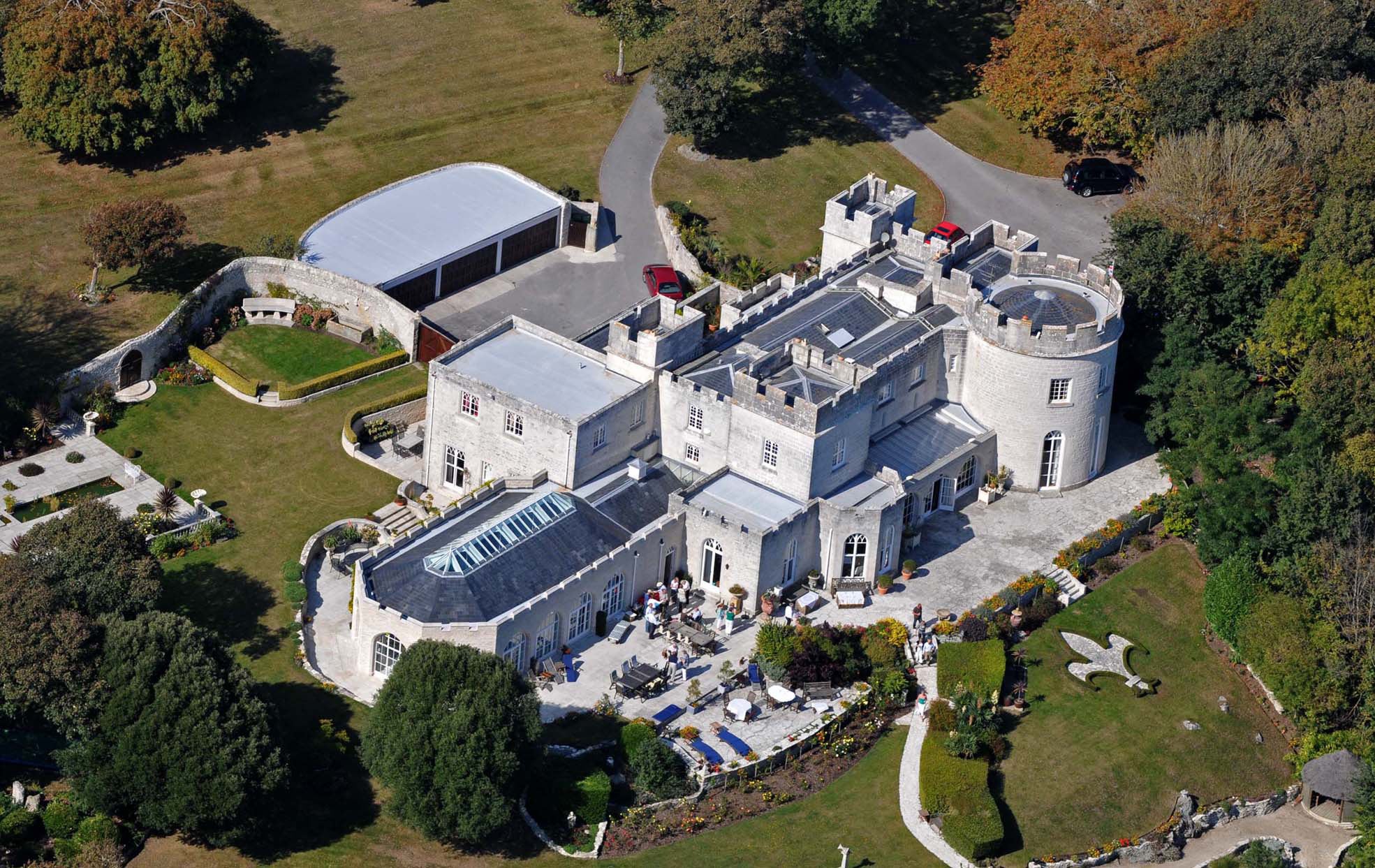
Curtis was the guardian of the oligarchs’ secrets. He was the only person who could identify and unravel the deliberately opaque ownership of their assets hidden in a financial maze while the Russian government desperately tried to trace the money.
The lawyer believed the Kremlin would grab his clients’ assets unless they were protected. And he was later proved right when the state-owned Rosneft seized ownership of the $33bn Yukos oil company without paying compensation to its shareholders.
Operating from his four-storey office at 94 Park Lane, Curtis amassed a personal fortune, enough to acquire his own helicopter, a Ferrari 360 Modena, a Bentley, a Gulfstream private jet, a villa in Ibiza, a penthouse apartment in London, a country house in Hampshire and a castle in Dorset.
For one Christmas holiday, he paid $44,000 for a 10-day stay at a castle in Jamaica. And he bought diamond rings from W Roberts at Hatton Gardens for his wife who was blissfully ignorant about her husband’s work.
But Curtis’ most lucrative oligarch client would prove to be his most dangerous. This was Mikhail Khodorkovsky, owner of the $15bn oil giant Yukos, then Russia’s second biggest oil producer. After being introduced by Samuelson, Curtis’s task was to protect Khodorkovsky’s assets from being frozen and seized by the Russian prosecutors.
Khodorkovsky liked the way Curtis kept sensitive details in his head and the paper trail to a minimum. On the rare occasions when the lawyer could not recall data, he telephoned his staff at 3am for the answers. Billions of dollars of Russian oil profits from Yukos were spirited away via offshore companies in Gibraltar and the Isle of Man.
Exactly how much will never be known. Such was the secrecy that one Curtis lawyer flew to Russia in the middle of the night and arrived in an obscure remote location purely to deliver a document. He walked straight through immigration at Tolmachevo Airport, drove to a forest in Siberia, showed the document, waited for it to be signed and then returned to the UK.
The sudden wealth, however, was accompanied by intense pressures. Curtis remained generous but became quick-tempered, neurotic and impatient. He entertained lavishly at Chinawhite Club – where he was given a VIP room. During one epic night at Stringfellows with some Russian clients, he spent £20,000 in cash – for vintage champagne, dinner, lap dancers in private rooms and tips. For the Russian businessmen, such hospitality was a sign they were accepted by the UK.
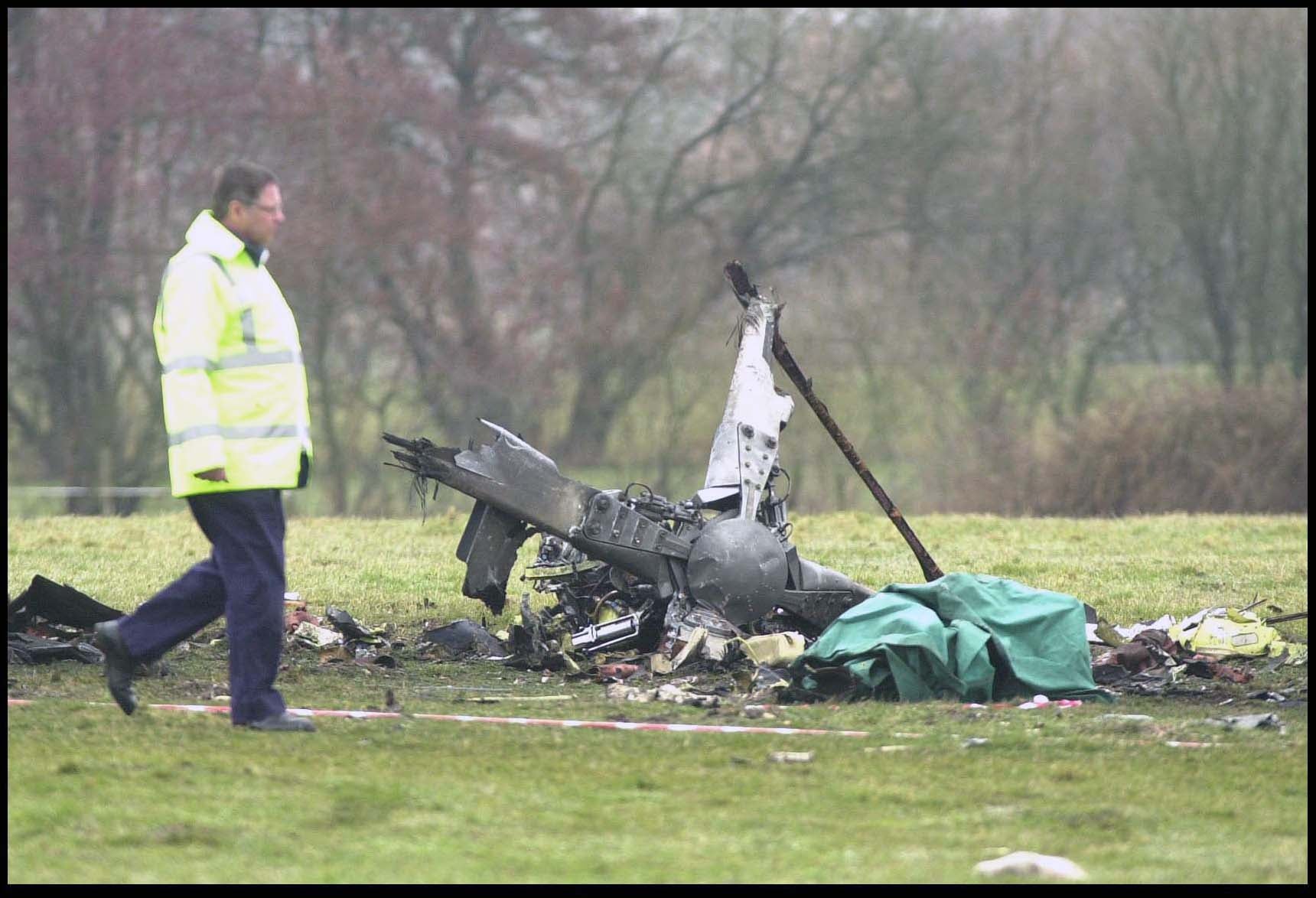
By 2003, Curtis was deeply embedded in the perilous business interests of Khodorkovsky who then made the fatal error of publicly challenging Putin over government corruption and funding opposition political parties. The oligarch had made himself a target and his London lawyer was in the firing line.
A tangled web
The Yukos billions, so carefully hidden abroad, were now in peril. On 21 October 2003, Samuelson, a key adviser to Khodorkovsky, received a phone call from a senior aide to Igor Sechin, then deputy prime minister and close confidante of Putin. “I want you to pass a message to Khodorkovsky”, he said. “If he does not leave Russia, he will be arrested”. It was a clear warning: Putin wanted the oligarch to leave the country so he would not need to arrest him.
The next day Samuelson flew to London to deliver the warning to Curtis and Vladimir Moiseyev, who oversaw Group Menatep, which owned Yukos Oil. “You need to tell Khodorkovsky that he needs to get out now,” said Samuelson and then asked Moiseyev about Yukos funds held in Swiss bank accounts. The largest amount by far was $4bn at UBS in Zurich. “You need to move this money quickly because as soon as Khodorkovsky is arrested, the funds will be frozen in Switzerland,” said Samuelson.
“While Swiss accounts are frozen, banks are not required to pay interest. UBS will earn more from the frozen accounts and so it is in their interests to comply with a request to freeze the accounts,” Samuelson continued. “I suggest you move the money out of Switzerland, into London and spread the funds among several accounts.”
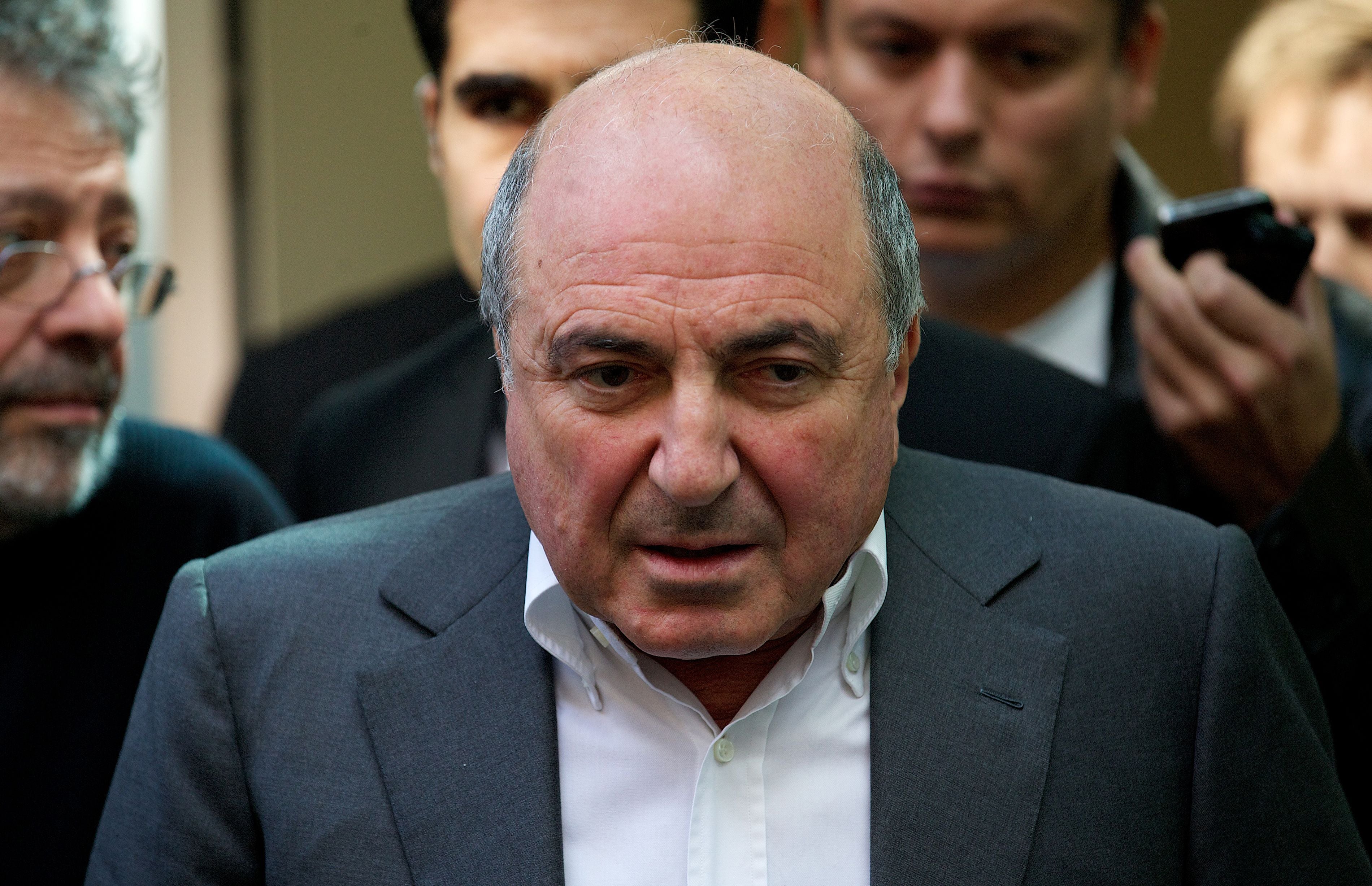
That afternoon Victor Prokofiev, the lawyer for Group Menatep, arrived from Moscow. It had been a hazardous and nerve-wracking journey. He had travelled by train for over three days because his leather suitcase was full of sensitive documents and could not risk being searched by flying.
Curtis was in full crisis mode and invited Samuelson and his Russian clients to dinner at Harry’s Bar, South Audley Street. Curtis hired a private dining room. As an extra precaution, he brought a transistor radio and turned up the volume of the music to deter eavesdropping by the FSB, the Russian security service. Security was a priority. Over dinner, Curtis, Samuelson, Moiseev and Prokofiev discussed the crisis.
“Listen, it is very simple,” Samuelson told his diners. “Mikhail [Khodorkovsky] will be in a Russian jail soon. You need to move the money before it is frozen.”
The group walked back to Curtis’s office on Park Lane where a plan was agreed and at 11pm Curtis called the CEO of UBS in London who had gone to bed.
“I am sorry to wake you, but it is an emergency,” he said. The banker arrived at Curtis’s office within minutes and was authorised to move the $4bn from Switzerland. His staff worked through the night so the documents for the new accounts in London were ready to receive the funds from Zurich.
At 8am the bank documents arrived at Curtis’s office. But they required a signature from a Menatep executive. Samuelson and a lawyer flew by helicopter to Biggin Hill, Kent, where they embarked on a private jet to Cyprus to meet a Menatep executive with signature powers on the UBS Zurich account in a hotel room.
If anything happens to me in the next few weeks, it will not be an accident
His signature was required to transfer the funds and set up the new bank accounts in London. Cyprus was chosen because the Russian executive did not require a visa to travel there. As soon as the documents were signed, Samuelson called Curtis who informed UBS and the $4bn was transferred from Zurich to London.
Samuelson then flew back to the UK and arrived at 3am, armed with the signed UBS documents. By the next day, $4bn had arrived in UBS accounts in London, out of the Kremlin’s clutches.
Three days later, on 25 October 2003, Khodorkovsky was arrested at gunpoint at Novosibirsk airport, Siberia, for alleged tax evasion and fraud. A month later the Kremlin requested that the Swiss government freeze all of Menatep’s bank accounts. It was too late. Khodorkovsky had been charged but the Yukos money was safe.
A man in trouble
The arrest of Khodorkovsky was a pivotal moment for Curtis. “The s*** has hit the fan,” he said. “I cannot go back to Russia now. I will be arrested immediately.” Gone was the friendly banter. Now conversations were all about business. The lawyer became impatient and demanding.
The pressure increased a month later when Curtis became managing director of Group Menatep and owner of Yukos Oil, on a salary of $15m per year. His job was to protect Khodorkovsky and the Yukos assets along with their secrets. Matters intensified when the Kremlin accused Curtis in court documents of being “the corporate mastermind” for organising “a myriad of illegal offshore structures” on behalf of Group Menatep and Yukos Oil. Curtis replied it may have been Byzantine, complicated, and secretive but it was perfectly legal.
Suddenly Curtis was no longer a Mayfair corporate lawyer. He was now a wealthy businessman trapped in the middle of a high-stakes power struggle between Russia’s most powerful man, Putin, and its wealthiest tycoon, Khodorkovsky.
By December 2003, Curtis lived a new life as a tax exile in Gibraltar where Group Menatep was registered. He moved into the penthouse suite at the Elliott Hotel at a cost of £5,000 per month and was barred from spending more than three months in the UK for tax reasons.
Computer illiterate, Curtis lived on the phone: his Vodafone bills ran between £15,000 and £30,000 a month. Calls to Russia would last hours or he’d dictate letters to his secretary in London. The lawyer brought up in Sunderland was managing Khodorkovsky’s global business empire and his $33bn oil company – all from his hotel suite.
Russian state media suddenly referred to Curtis as “the mystery man” in Gibraltar who controlled Russian Yukos oil. Billions of pounds were at stake. The political survival of Putin was in the balance as Khodorkovsky’s wealth could have funded an effective opposition party. And the Mayfair lawyer was no longer in the shadows: he was a key witness in the forthcoming court case against the oligarch in Moscow.
Curtis felt increasingly exposed. He feared the Russian authorities would knock on his door asking questions. And he knew Russian state intelligence officials were complicit in contract killings. “I have dug myself into a hole and I am in too deep”, he told a colleague. “I am not sure that I can dig myself out.”
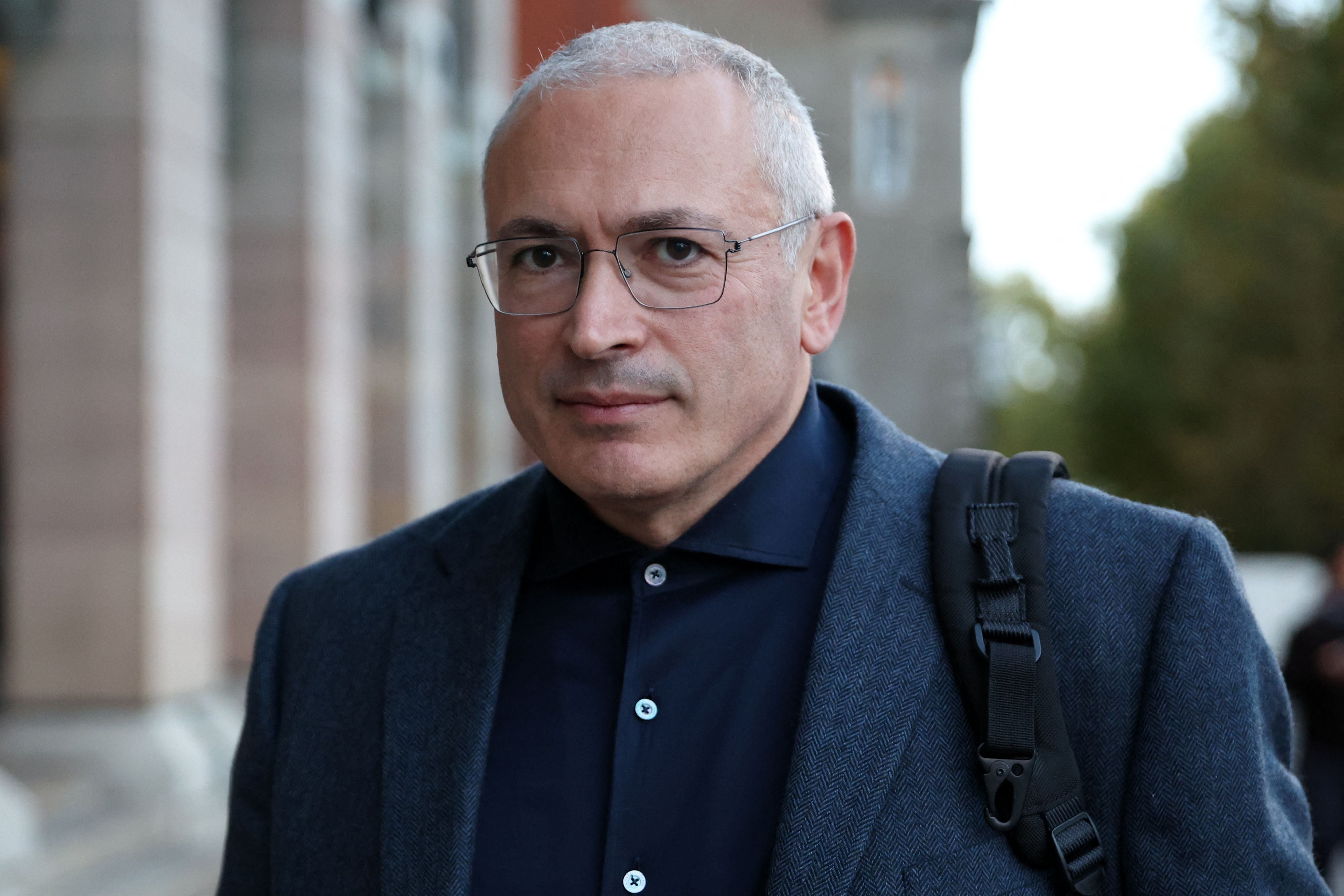
Curtis increased his physical security. He could not resign from Group Menatep because he was a shareholder and a trustee of the shares. But he could protect himself and his family. Security had always been tight. Now it was paramount.
The Mayfair lawyer believed he was an assassination target. During one of his visits to London, he moved his desk away from the window on the first floor overlooking Park Lane because he believed someone would shoot him in the back of the head. He spent £40,000 on counter-surveillance equipment and special bugs were placed in cars.
He used mobile phones to record meetings because mobiles have long memories and could be left open on the table. But despite the elaborate security, the oligarchs’ lawyer sometimes resorted to more primitive methods to avoid being bugged: he bought burner phones, used them for conversations and then threw them into the Thames.
In the last few weeks of his life, Curtis was under constant surveillance, according to his bodyguards. His telephones were tapped and his security consultants also discovered a small magnet used to secure a listening device at his castle in Dorset. According to Eric Jenkins, his uncle, he received numerous anonymous threats and intimidating phone calls. He took them seriously enough to hire a team of bodyguards and install a panic button inside his castle. “There certainly were death threats against Stephen”, confirmed Nigel Brown, his head of security.
At first, Curtis dismissed the threats, but when one phone call mentioned his wife and daughter, he decided to act. Fortuitously, MI6 had recently set up the Financial Intelligence Serious Crime Unit (FISC) whose primary purpose was to disrupt international organised crime, drug trafficking and money laundering that impacted the UK. The focus was UK overseas territories and one target was Gibraltar, a favourite for the oligarchs because of its favourable tax status and absence of VAT.
By the time Curtis had moved to Gibraltar, MI6’s FISC had officers in place. One was Matthew Porter, a Treasury official who was seconded to MI6 because of his expertise and knowledge of offshore jurisdictions. Based in MI6, Porter liaised with the Gibraltar Criminal Intelligence Division and met Curtis. His point of contact was Alex Charles, an experienced Customs intelligence officer who specialised in investigating drug trafficking and fraud. In effect, Charles was an agent for MI6 in Gibraltar.
A double life
The Customs Intelligence officer met Curtis while playing golf at the San Roque Golf Club. An astute, affable Irishman, Charles bonded with the gregarious Curtis and they became friends. One evening Curtis confided he was trying to buy a private bank called Raphael and Sons in Buckinghamshire so he could avoid due diligence from the banks if they refused to take his clients’ money.
At the time Curtis was involved in a row with Clydesdale Bank who had closed down Berezovsky’s accounts because of concerns about the source of his wealth. Still vulnerable to Kremlin prosecution and persecution, Curtis needed the protection of HMG. And so when Charles asked him: “Would you be interested in talking to the Foreign Office?”, the lawyer readily agreed.
The “Foreign Office” was, of course, code for MI6’s FISC unit whose leading official was Matthew Porter. A month later in December 2003, Porter met Curtis and Leonid Nevzlin, Khodorkovsky’s business partner – in his Park Lane office. Nevzlin was charismatic, quietly spoken but that disguised a steely ruthlessness. Khodorkovsky was in jail at the time awaiting his trial and needed help from friends in high places. Nevzlin and his lawyer knew Porter worked in “the Foreign Office” and what that meant in reality.
Curtis was nervous. At the last minute, he moved the location of the meeting from the boardroom. “We have to move because there could be photographers in the garden,” he said. He was friendly and affable but anxious.
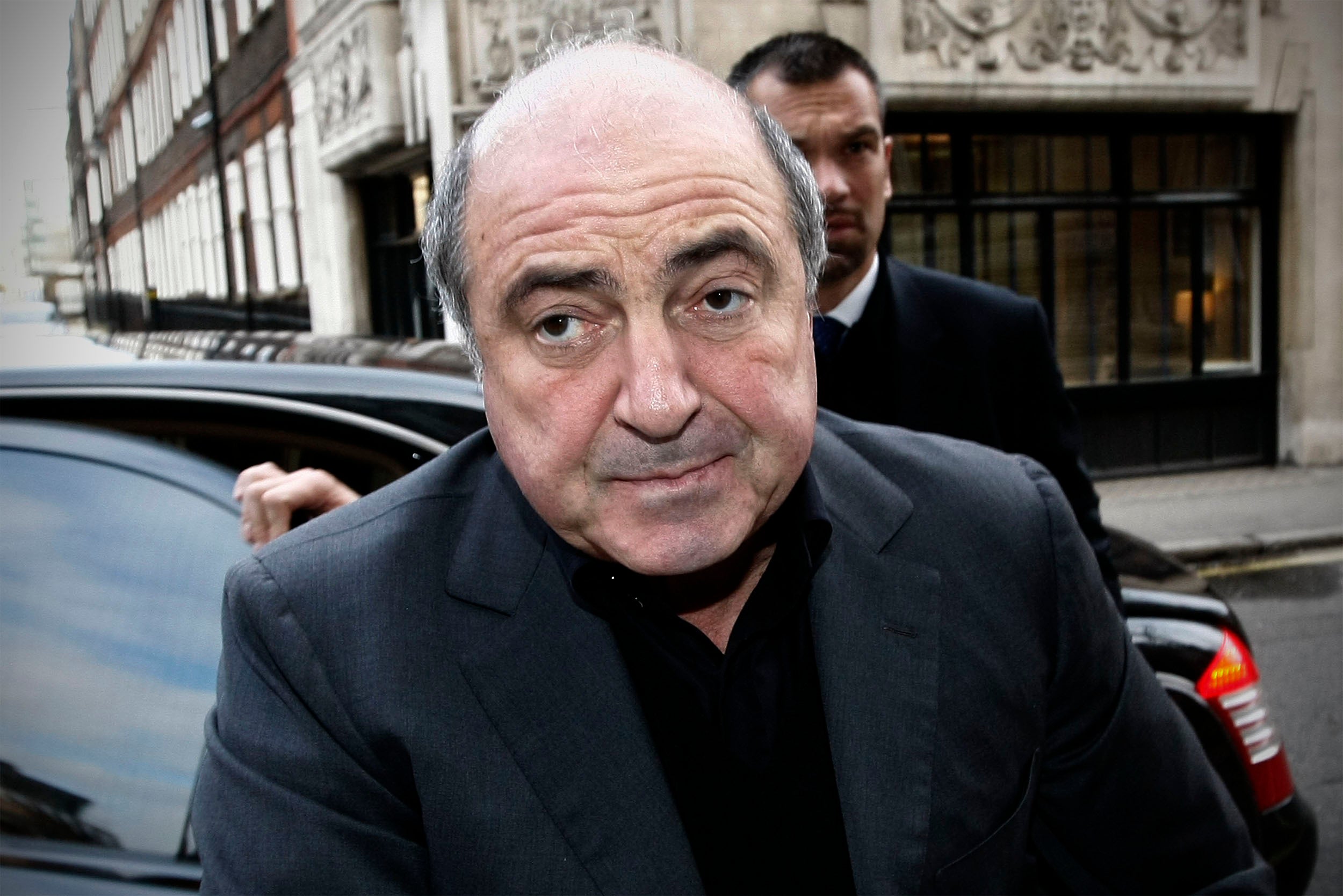
Nevzlin was confident and self-assured. He wanted a more transparent relationship with the financial regulators. He wanted Yukos to be like the big US oil multinationals. One method was to integrate itself with the British establishment. And so Nevzlin proposed the setting up of foundations between Russian and UK Universities to promote closer links between Moscow and London.
For Porter, the point of the meeting was to assess the flood of Russian funds into London. The MI6 officer saw his job as understanding and stopping the use of the UK as a haven for dirty Russian cash and money laundering. But soon after he submitted a report about organised crime he received a phone call from the then head of the Russia desk at MI6 who told him: “This is not helpful. You don’t understand. We are trying to be friends with Putin.”
Despite MI6’s complacency, Porter believed Russian oligarch money coming into London remained a serious issue. But the government was less concerned. An official from the Joint Intelligence Committee in the Cabinet Office told Porter: “This is not a problem. We need to keep the City of London happy.”
By late January 2004, Curtis’s anxiety level about his security remained high, so he arranged to meet Porter again. He led the MI6 officer down several corridors that ended up in a secluded office which he felt was not bugged.
At this meeting, Curtis repeated his interest in buying the Raphael and Sons private bank and expressed his frustration about being asked about the source of his Russian oligarch clients’ wealth.
“I want to do my own due diligence and not have to deal with these irritating questions,” he said. He wanted to know if the financial regulators would object. Porter did not respond either way but privately recommended to the UK Financial Services Authority that on no account should Curtis be allowed to buy the bank.
Curtis was the guardian of the oligarchs’ secrets. He was the only person who could identify and unravel the deliberately opaque ownership of their assets hidden in a financial maze
For the next month, Curtis secretly informed MI6 and the National Criminal Intelligence Service at Scotland Yard of all major deals by Group Menatep and his clients, including suspicious transaction reports. As a lawyer, this provided him with a form of protection.
On 23 February 2004, Curtis met Alex Charles, the customs officer working for MI6’s financial intelligence unit and delivered a two-page letter detailing the funds used by Group Menatep and its Yukos oil subsidiary. These documents were also sent to Porter at MI6 and the City of London Fraud Squad. Curtis added he wanted to discuss their contents. That meeting never took place because 10 days later the lawyer was dead.
The spies at MI6 were shocked and immediately launched an investigation. Remarkably, GCHQ, the government’s top-secret listening post at Cheltenham, had eight separate taps on the lawyer’s multiple mobile phones. Despite throwing away his phones at a phenomenal rate, GCHQ had inherited a colossal amount of “product” – transcripts of Curtis’s conversations, a security source told the investigative journalist Adrian Gatton soon after his death.
That material is understood to have been passed to the Russian authorities to help them with their own investigation into the death. At the time – 2004 – the British government was on friendly diplomatic terms with Putin’s regime.
While no agency or individual has obtained evidence that Curtis was murdered, MI6 “gathered intelligence” suggested he might have been assassinated, according to Heidi Blake in her book From Russia with Blood: “They [MI6] asked for help from their partners in the United State’s ... US spy agencies confirmed they had information linking his death to Russia stored in their classified databases. The intelligence suggesting Russian involvement in the fatality in relation to Curtis was considered ‘strong’,” the American spies said.
“The problem was the information came from the same web of sources and listening posts that were providing such a crucial portal into the development of a chemical and biological poison at the lab outside Moscow, and it was impossible to use it without risking blowing the whole network. That would nix any chance the spies had of staying ahead of Putin’s long-term strategy and so the information stayed locked away.”
The end game
Today, precisely 20 years since the fateful helicopter crash, the death of Stephen Curtis remains a mystery. While no credible evidence of sabotage or murder has ever been discovered some clients still believed it was premeditated. “He was killed,” said the Russian oligarch Boris Berezovsky who attended his funeral. “It was an assassination.”
“Definitely”, said one former employee of his law firm. “It was done by remote control. They knew about his flight plans in advance because they were tapping his phones.”
But Samuelson doesn’t doubt it was an accident. “The pilot was inexperienced on Stephen’s new twin engine helicopter and had a problem with its instrument lighting,” he told me.
However, Dennis Radford, the father of the pilot, told the inquest he did not think that the Air Accidents Investigation Branch had properly investigated the possibility of foul play. “The lack of security at Bournemouth Airport is such that, had anybody wished to sabotage the aircraft, they would have unchallenged and unrestricted access for that purpose,” he said.
At the inquest, Paul Hannant, the senior air accidents investigator, said: “If you are going to bring an aircraft like this down, you have either got to destroy the main rotor system or interfere with the main gearbox.
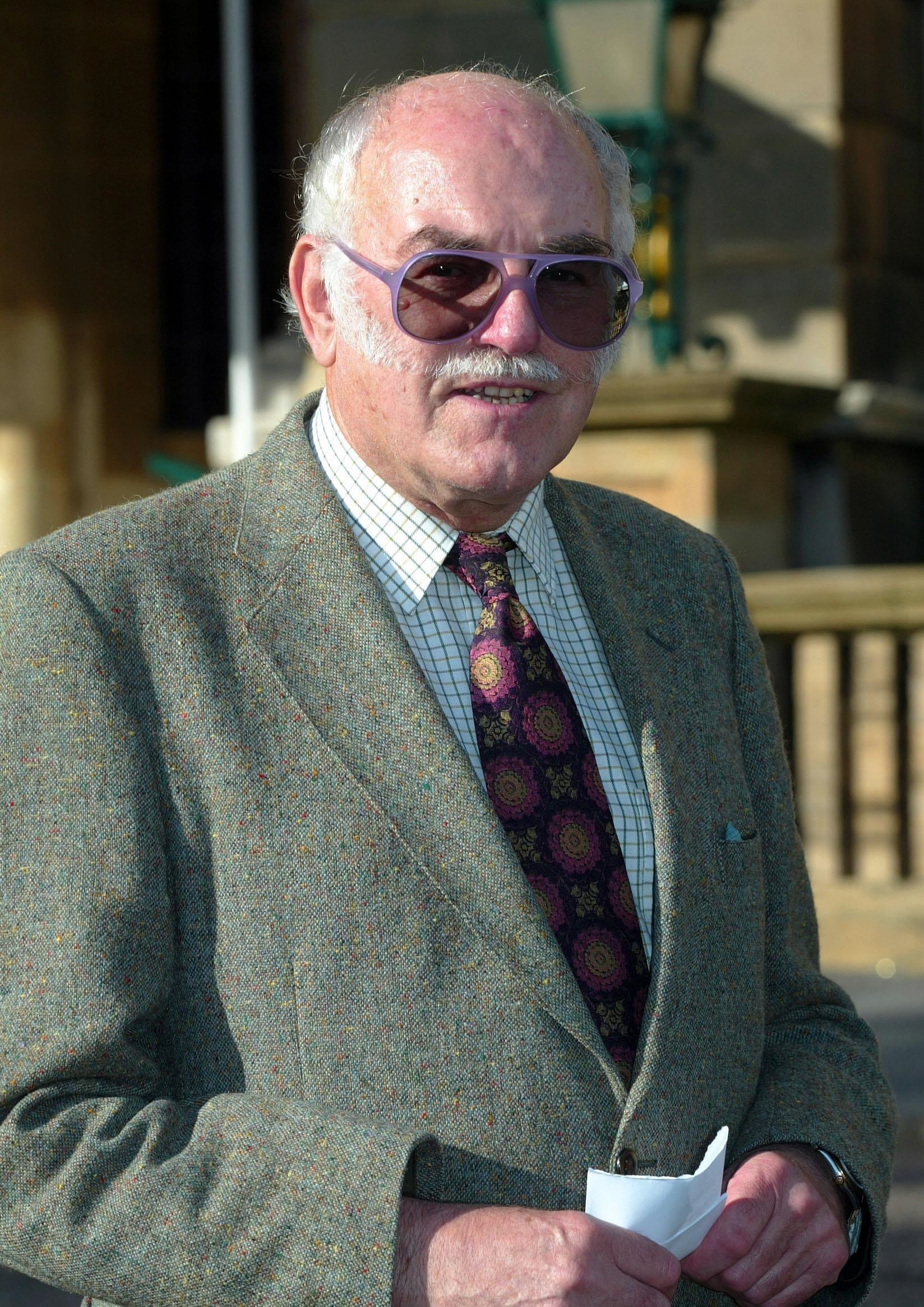
“The only other real way is to interfere with the controls. If you disconnect the controls that would be immediately apparent to the pilot ... Any attempt to use a corrosive device or a remote-control device would also have been apparent to Captain Radford.”
Ultimately, deteriorating weather conditions and pilot inexperience were blamed for the crash. The air accident report concluded: “The most likely cause of the accident was that Captain Radford became disoriented during the final stages of the approach to Bournemouth Airport.” The inquest reached a verdict of accidental death.
Yet, as his father Dennis later claimed: “Max had flown many, many times in considerably worse conditions than that. And if he became disorientated, why was he on the radio talking to the control tower 29 seconds before the crash?”
What is not in dispute is the Kremlin had the motive to authorise a state-sponsored assassination as they did with Alexander Litvinenko and Alexei Navalny. Curtis was not just working for Putin’s most powerful and wealthy enemy – Khodorkovsky – he was head of his most important company. His death removed an executive who was in effect managing Khodorkovsky’s business empire while the oligarch languished in a Siberian jail for 10 years. He left Russia in late 2013 and now lives in London.
There is no doubt the lawyer received death threats and there were suspicious circumstances. A week before the fatal crash Curtis told a close friend at his apartment at Waterside Point: “If anything happens to me in the next few weeks, it will not be an accident.” He laughed but was not joking. He then played the messages left on his mobile phone: “Curtis, where are you?”, asked in a voice with a heavy Russian accent: “We are here. We are behind you. We follow you.”
If Curtis was murdered, it is unlikely evidence will ever be discovered. His wife Sarah never believed her husband was assassinated, although she reflected on why it was a Russian businessman and not a police officer who first informed her of his death.
At the funeral, she was shocked by the presence of Russians who looked like a cast from The Godfather. “Who are these people?”, she asked in bewilderment. Her husband had told her nothing of his secret life in London, Gibraltar and Moscow. That was deliberate. He was, after all, the lawyer who knew too much.






Join our commenting forum
Join thought-provoking conversations, follow other Independent readers and see their replies
Comments